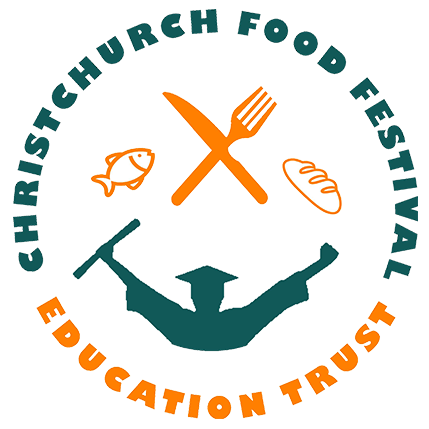The first 1,000 days of life are crucial for brain development and food plays an important role. For some pregnant women and children, getting all of these nutrients can be a challenge. Families who are vegetarian, especially those who are vegan, may find it particularly challenging. Certain vitamins and minerals impact the development of young child’s brain. They include iron, zinc, copper, iodine, selenium, vitamin A, choline and folate. Also, protein and fat have crucial role the development of child’s brain.
Protein: Protein can be found in meat, poultry, seafood, beans and peas, eggs, soy products, nuts and seeds, as well as dairy. Child’s developing brain needs protein, or more specifically amino acids, to make neurotransmitters.
Fat: Fats are necessary for the development of young child’s central nervous system, vision and intelligence. Docosahexanoic acid (DHA), an omega-3 fatty acid, is one of the components of brain tissue. DHA may influence neurotransmitters in the brain, helping brain cells to communicate better with each other. The brain is made up of more than 50% fat, 25-35% of which is made up of the essential fatty acid DHA. DHA-rich food sources include human milk, cold water fatty fishes such as salmon, tuna, sardines and mackerel. There have been concerns about the levels of methylmercury in fish, especially the effect on foetuses, infants and children. Swordfish, king mackerel, tilefish and tuna contain high mercury level therefore children avoid these fishes. (FDA) recommends to have 1 to 2 serves of fish a week, from the age of 2 years (1 serve = 2 ounces for children 4 to 7 years, or 4 ounces for older children). If children do not eat fish or are vegetarian, they can obtain plant sources of omega-3 fatty acids, known as alpha-linolenic acid, mainly from canola oil, soybean oil, linseeds (flaxseeds) and walnuts. Also, omega 3 may supply mental health for children. DHA also has a profound effect on children brain’s ability to regulate emotions, make good decisions.
Iron: Animal products (meat, poultry, fish), grains, vegetables, dried fruits contain iron. Iron is important for brain development and cognitive performance and the development and function of the dopamine, serotonin, and norepinephrine systems. Nevertheless, mistimed or excessive iron may lead to worse neurodevelopmental outcomes. Pregnant women intake sufficient iron during pregnancy for their foetus. Depending on age, a 1-2 year old child needs ½ a serving (45g) of meat and alternatives a day, and 3-6 year old child requires 1 serving (90g) of meat and alternatives a day. To help with iron absorption, vitamin-C rich foods like fresh fruit and lightly-cooked vegetables are also encouraged with meals. Children between 4 and 5 years need 10 milligrams a day.
Zinc: Meat, legumes, seeds, nuts, dairy, whole grains, eggs, green vegetables and dark chocolate contain zinc. Zinc is a trace mineral that plays a central role in cellular growth, specifically in the production of enzymes necessary for the synthesis of RNA and DNA. Early life zinc deficiency results in poorer learning, attention, memory and mood. Positive impact of zinc when given in combination with iron. Some people are at risk of a zinc deficiency, including young children, teenagers, the elderly and women who are pregnant or breastfeeding. Severe zinc deficiency can cause abnormal cerebellar function and impair behavioral and emotional responses.
Choline: Meat, dairy, and eggs have lots of choline, but so do many vegetables and other foods. Choline deeficiency may cause memory dysfunctions. High choline concentrations in the brain and spinal cord are important for neural tube closure and brain development.
Iodine: Seaweed is a great source of iodine, but we also get it from iodized salt, seafood, dairy products, and enriched grains. The developing fetal brain is most susceptible to iodine deficiency during the first trimester. Iron deficiency to poorer learning and memory, sensory gating, and increased anxiety in milder deficiency.
Vitamin A: Along with liver, carrots, sweet potato, and spinach are good sources of this vitamin. This Vitamin’s role in cognitive functions. Vitamin A regulates various neurological processes in growing children. Vitamin A deficiency is one of the most common forms of malnutrition globally. Vitamin A, supplemented through diet, has been found to aid learning and memory in children.
Vitamin B12: Vitamin B12 is found in fish, meat, poultry, eggs, milk, and milk products. Brain growth is especially rapid in the first two years of a child’s life, and deficiencies of vital nutrients can interfere with his/her development and functional capabilities, particularly those associated with higher-order thinking. Children who get an adequate amount of Vitamin B12 performed better in cognitive tests than those who had a deficiency.
Vitamin D: While it has been established that Vitamin D is crucial for bone development, it has also been found to be important for a child’s cognitive capabilities. Vitamin D receptors are widespread in brain tissue, and studies indicate that low concentrations of this Vitamin can be linked to a range of diseases later in life like Alzheimer’s.
These food can help children for healthy brain.
- eggs: eggs help children to concentrate
- yogurt: yogurt can help keep brain cells in good form for sending and receiving information.
- Greens: Full of folate and vitamins, spinach and kale are linked to lower odds of getting dementia later in life.
- Fish: Protect the brain from declining mental skills and memory loss.
- Nuts and Seeds: Nuts and seeds may boost mood and keep children nervous system in check.
- Oatmeal: kids who ate sweetened oatmeal did better on memory-related school tasks than those who ate a sugary cereal.
- Apple and plums: Apples and plums are lunchbox-friendly and contain quercetin, an antioxidant that may fight decline in mental skills.
